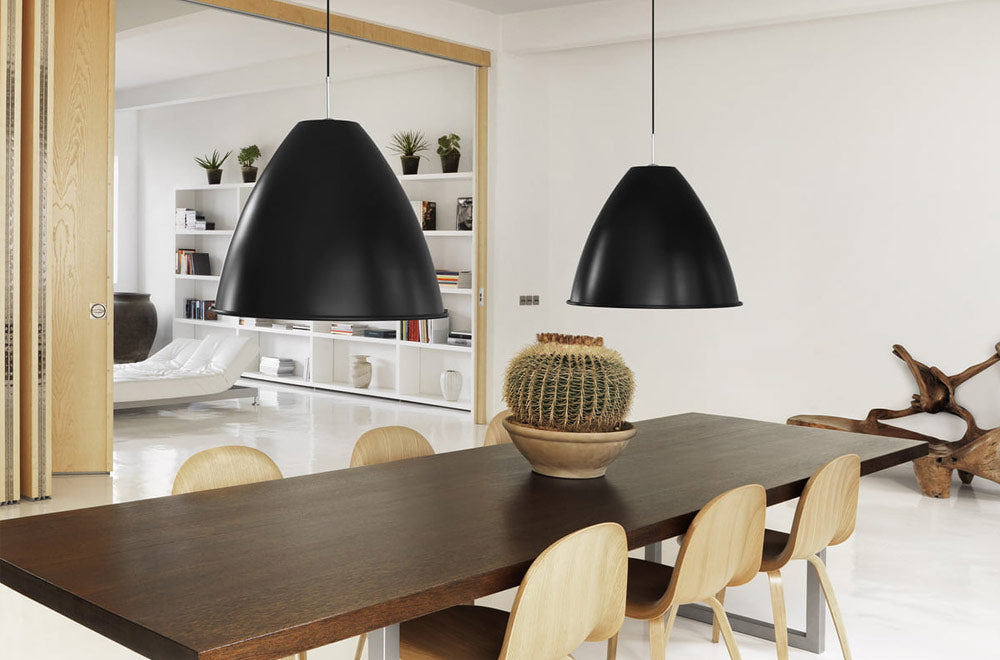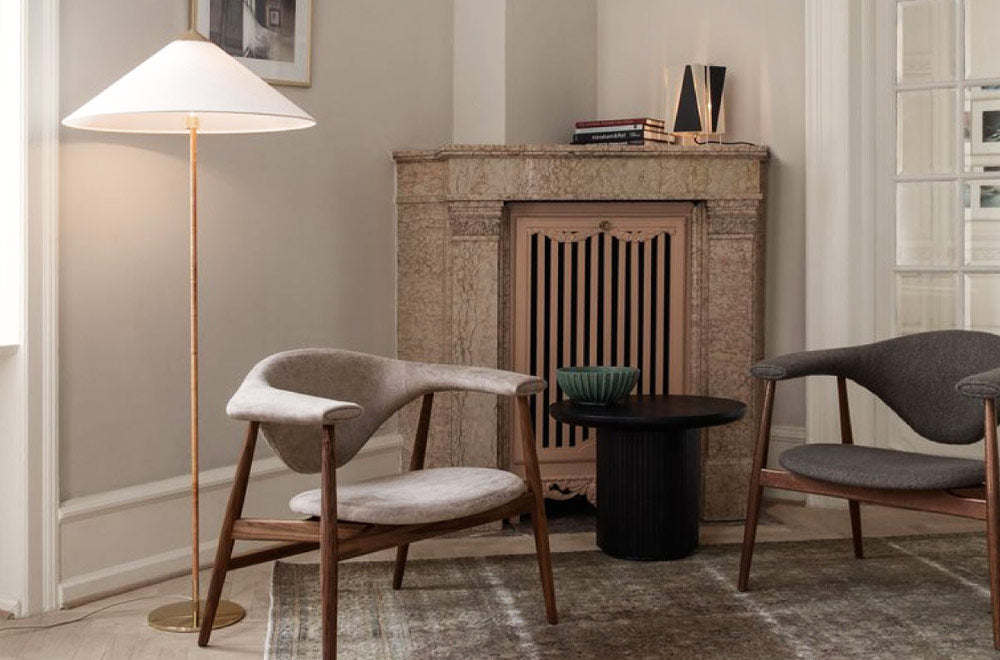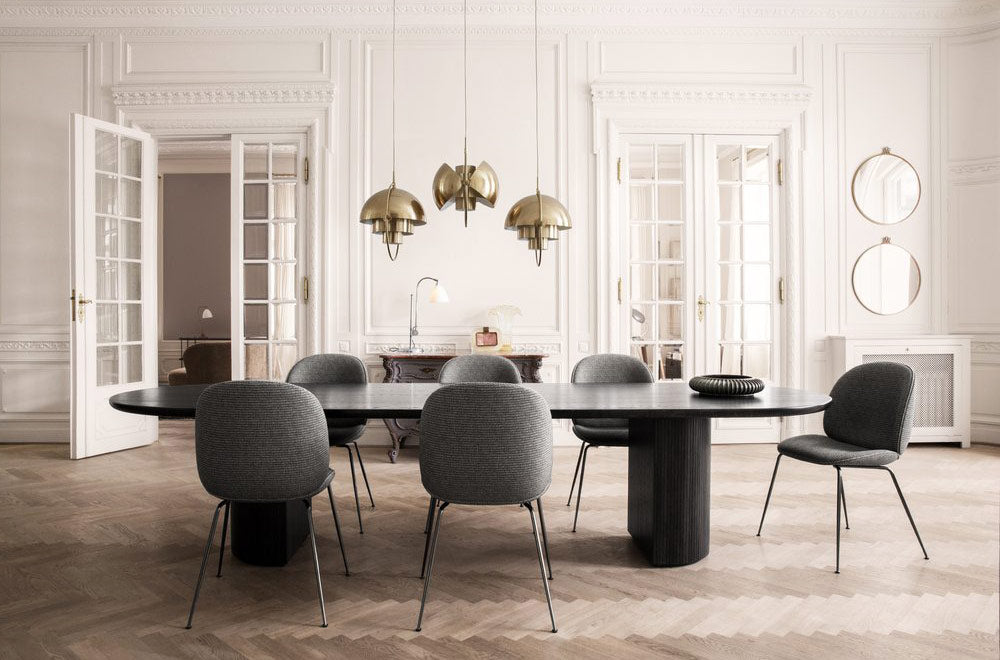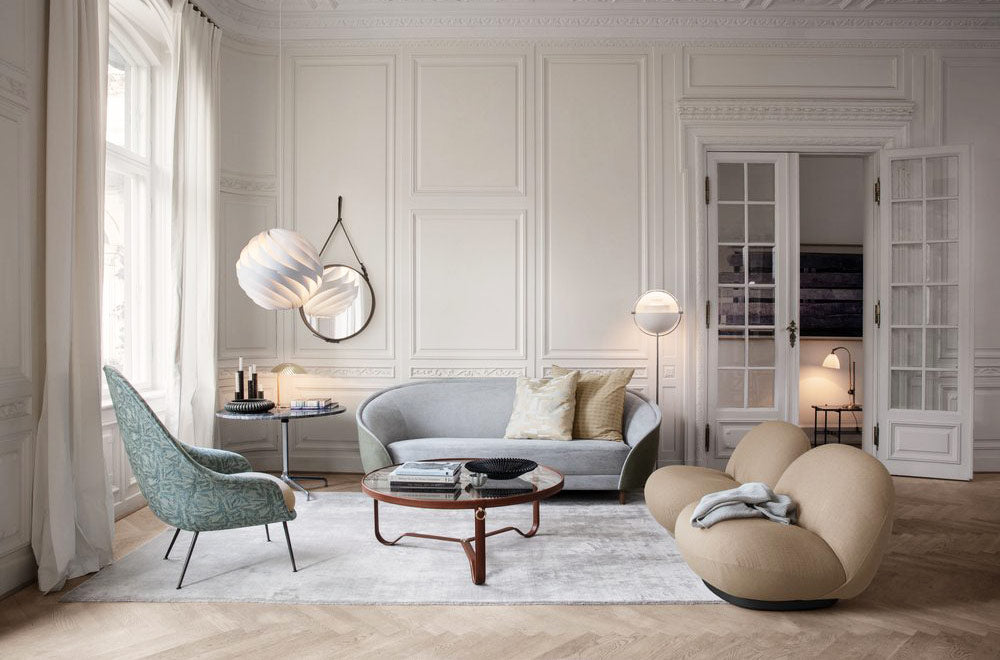First launched in 1953, Matégot’s eccentric modern design still retains its appeal 70 years later. Satellite features the designer’s signature material innovation, the perforated metal sheeting he called Rigitulle, and the folding and shaping technique he used to form it into an inventive range of furniture and home accessories.
Width: 45 cm
Diameter: 22 cm
Base diameter: 42 cm
Height: 128 cm
Measurement details: Top hat 45 x 27 cm
Bulb base: E27
Light source: 5W LED (included)
Colour temperature: 2,200 K
Luminous flux: 810 lm
Lifetime: 30,000 h
IP rating: 65
Protection class: II
Voltage: 240 V
Cable length: 250 cm
Cable colour: Black
Cable material: Plastic
Weight: 3.75 kg
Integrated switch: Yes
Dimmable: No
Mathieu Matégot (1910 - 2001) was a Hungarian designer and architect. After studying at Budapest's school of art and architecture, he settled in France in 1931. He was a volunteer in the French army, was captured and not released until 1944. After returning home, he started producing handmade furniture in Paris. Matégot's organic forms and lightness of touch create a sense of joy and the ground breaking and innovative techniques that he applied resulted in unique aesthetics and furniture designs. He was the first person to combine metal tubing with perforated sheet metal; ritigulle, a technique he patented and also a pairing that particularly characterizes his work. Like many of his peers Mategot travelled the world in search of inspiration, techniques and upon return transformed these impressions into his own unique designs and interpretations. Wether it was industrial processes or aesthetics, he always collected and interpreted - he even patented and set up his own production to apply these new technologies into his designs, He was a true innovator of his time! In the 1950's - also the one decade - that he devoted to the design of furniture and interior accessories, he created a wide range of distinctive designs that today is considered iconic and contemporary. To ensure quality in the production of his own designs - Matégot set up two of his own workshops - Société Mategot, one in Paris that employed up to twenty workers and a second in Casablanca, Morocco. Both manufactured in limited numbers for up to 200 items and continued until 1959 when Mategot abruptly ended his production and began his work on tapestry, which he would continue for the rest of his career.
































